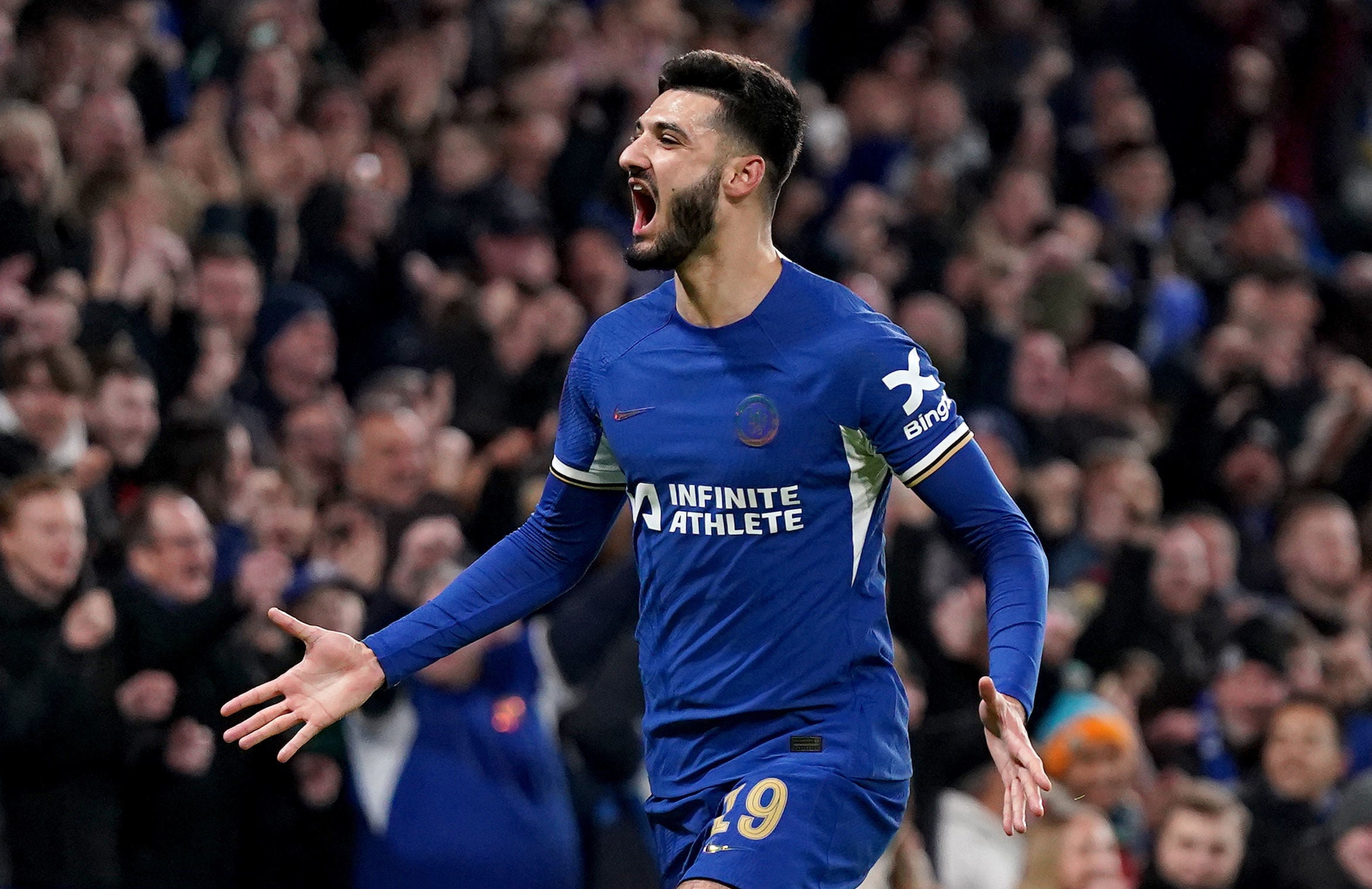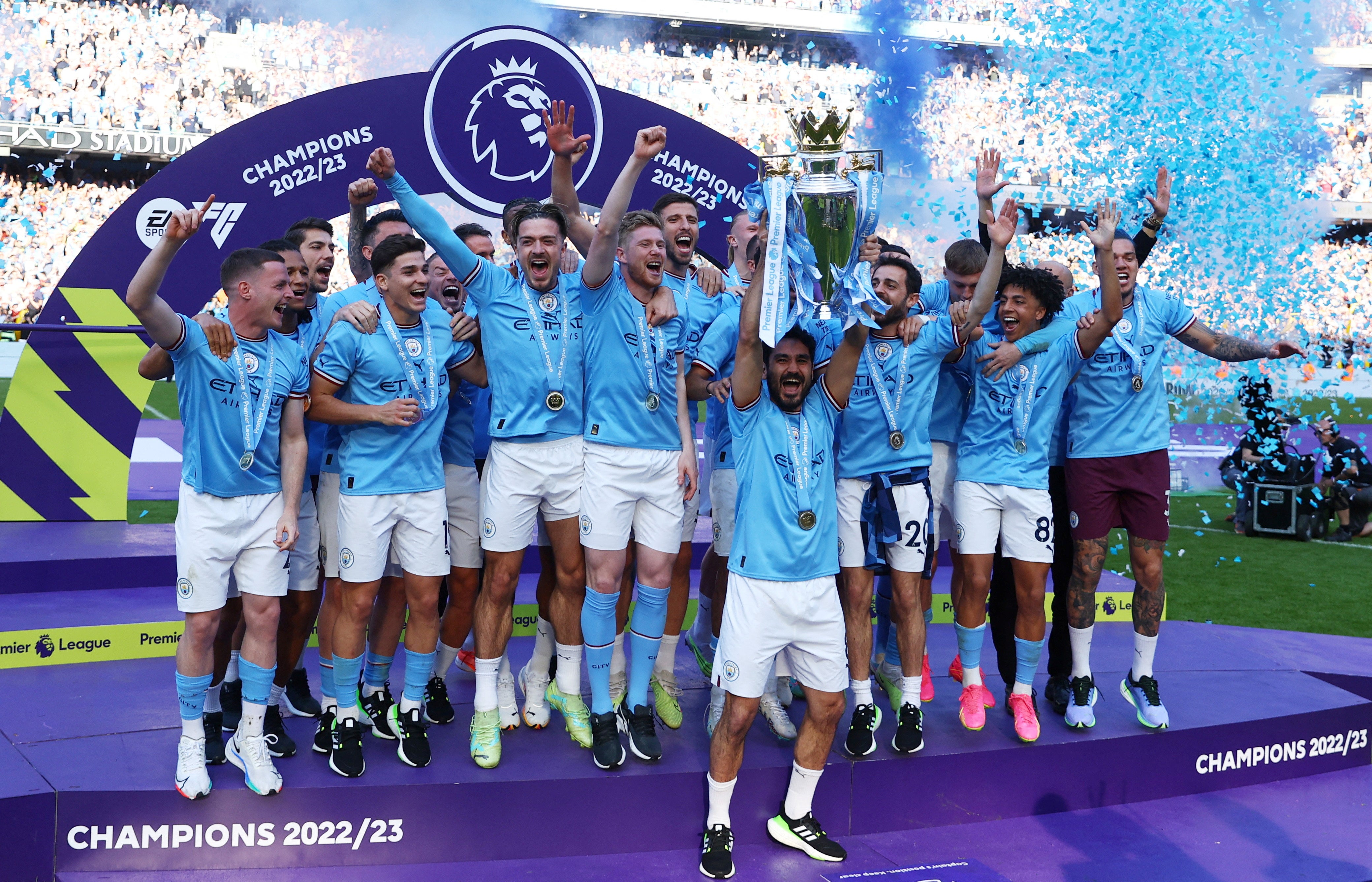Dull January transfer window was the perfect therapy for football’s spending addiction
Senior figures at Premier League clubs have been complaining about the financial constraints of the Profit and Sustainability rules, but football needs to start being more prudent

Your support helps us to tell the story
From reproductive rights to climate change to Big Tech, The Independent is on the ground when the story is developing. Whether it's investigating the financials of Elon Musk's pro-Trump PAC or producing our latest documentary, 'The A Word', which shines a light on the American women fighting for reproductive rights, we know how important it is to parse out the facts from the messaging.
At such a critical moment in US history, we need reporters on the ground. Your donation allows us to keep sending journalists to speak to both sides of the story.
The Independent is trusted by Americans across the entire political spectrum. And unlike many other quality news outlets, we choose not to lock Americans out of our reporting and analysis with paywalls. We believe quality journalism should be available to everyone, paid for by those who can afford it.
Your support makes all the difference.As club executives called each other in the last days of the window, it wasn’t for the customary purpose of seeing what deals could be done. It was with the now customary complaint that Profit and Sustainability (P&S) rules had prevented spending.
It isn’t the only reason, of course, since Saudi Pro League expenditure has mercifully dampened and there isn’t the same panic in the bottom half of the Premier League. Clubs aren’t as fearful of going down, so don’t feel the need to spend to stay amid the competition’s accumulation of riches. And if the Premier League doesn’t spend, it now means the rest of Europe doesn’t move.
That’s what this entire system has done to the game, almost cannibalising it so one competition consumes everything in sight – and maybe itself. Two days before the window ended, some of the main “action” was Plymouth Argyle rejecting an offer from Lazio for the highly rated Morgan Whittaker.
That’s a sentence that would have been incomprehensible to people 20 years ago. We’re a long way from Christian Vieri and Hernan Crespo joining Lazio for huge fees. That isn’t to say Sergio Cragnotti being able to spend hundreds of millions for the Italian club in the early 2000s was a good thing since it was a driver of the current system.
It does reflect one of the reasons why a quiet transfer window is a good thing for the wider game, albeit with a few caveats. Football needs to wean itself off its generational addiction to spending, but what it really requires is an intervention that brings significant reform.
This is, after all, what the world outside the game is shouting for, given that the European Court of Justice has just asked serious questions of football’s governance model and even as laissez-faire a government as the Conservative Party is instituting an independent regulator.
The sport has shown that it can’t govern itself, and it’s a situation that has directly led to the entire landscape being dominated by a narrowing band of clubs. As has been repeatedly written in these pages before, nobody with a revenue of less than £460m has won the Champions League in over a decade. The Premier League looks set for another Manchester City-Liverpool title race that City will probably win. And this from a sport whose on-pitch rules – let alone its off-pitch rules – had for decades ensured an exhilarating unpredictability.

The whole transfer system has been a considerable factor in this, which is why a quiet window should give pause for thought.
You only have to look at the trend here. This month just gone, Premier League clubs spent less than 10 per cent of what they did last January, but that is precisely because they did spend almost £900m this time last year. That splurge helped push many of them closer to P&S limits... but for what? One argument from within the Premier League is that clubs are consequently stronger, but has it manifestly affected many? Or has it just kept them closer to where they were? It’s often like they’re just spending to keep up, which should point to a fundamental problem.
This fits into a wider trend. For 30-40 years, but especially since the Bosman ruling that completely opened the market, football has been locked in a wage race that has been ruinous for competitive balance. The consequence of any new money coming in was to spend it on players, and the solution to any problems from that was to spend it on more players.
What this did, in the absence of proper regulation, was accelerate that wage race between clubs. The effects of this were obvious, and it remains remarkable now there wasn’t more foresight about it. Wealthy clubs were always going to win, and those trying to keep up were going to push themselves to oblivion trying to do that. It was why Financial Fair Play rules – now P&S – were needed in the first place. Clubs needed to be saved from themselves, and that innate need to spend.
The fundamental problem was that those rules were never complemented by competitive balance mechanisms to preserve vitality in football. The “trickle-down” of the transfer system has never worked. It has instead reinforced structural problems.
This is where the real reform is required. Cost control rules can be a good thing for the game as a whole if they are combined with redistribution rules.
And it might well get to the point where the biggest clubs – usually the loudest voices against reform – require it.
Take Manchester City-Burnley on Wednesday night. Was that really a competitive sporting event in any real sense of the term? It was a foregone conclusion, which is generally the case for many games involving the Super League clubs across Europe. There will of course be fluctuations like those Barcelona, Chelsea and Manchester United have been suffering, but the long-term patterns are clear. It is why the Champions League is being changed, because the group stage has become so boring.
People are watching now, and attendance – in England, at least – remains healthy. An argument like this can’t go without acknowledging the rather significant fact that football has become the most popular cultural interest the world has ever seen.
But that worldwide audience has been built on decades of unpredictability as well as globalised communication combined with the sport’s core popularity and how easy it is to play.
Those virtues may now end up a weakness, as mass interest concentrates all money and talent towards the top and the infrastructure starts to fail.

Just because something is popular now doesn’t mean it stays that way indefinitely. Broadcasting contracts for domestic competitions outside England have already started to decline from five years ago.
This is a warning for anyone who gets too complacent or self-satisfied about the power of the Premier League. The 20th century shows that cultural interests can just stop becoming popular, as has happened to a range of other sports that football has also cannibalised. The game, as that history shows, needs constant forward-thinking about what comes next.
That should come in the guise of reform, but that may mercifully be imposed upon it by outside bodies. That is why some in football are “excited” about December’s European Court of Justice ruling as well as the independent regulator.
While the latter brought most focus on the consequences for the Super League, far more important to the future of the game was what it said about governance. It was a warning to Uefa and Fifa to start shaping up. The Uefa hierarchy has inexplicably responded by seeking to change term limits for executives. This is not the good governance that the European Court of Justice spoke about.
It also sums up the entire problem. The game is facing multiple issues, from competitive balance to state ownership, and what has the most powerful body in the most powerful area – the European club game – been consumed by? It is a proposed statute amendment that may only really affect one man: Aleksander Ceferin, the Uefa president.
The game needs to think much bigger than this. It is why this window should offer that pause for thought. For all the complaints about controls, people in football should consider some of the benefits. More young players have been given opportunities, something that probably wouldn’t have been so likely if clubs could just spend. Would all of Kobbie Mainoo, Lewis Miley, Oscar Bobb, Rico Lewis and Jack Hinshelwood have played as many minutes with a more open market?

This is what the system should be encouraging, and it’s more reassuring given that there has been an unintended consequence in the regulations incentivising the sales of academy graduates. That’s precisely why authorities should start giving further consideration to strengthening regulation, not weakening it by loosening P&S rules.
A complementary problem has been how the sport has been consumed by this side industry in itself – almost a circus – that is the entire transfer media industrial complex. There are swathes of “football fans” who seem far more concerned with what their club do in the market than what they do on the pitch.
This and that entire aggregation culture only accelerate all these problems, because they exert a social media pressure on the game, and clubs.
One executive privately complained to The Independent that, after their club’s best season in years, one supporter abused him because of a lack of activity in the transfer market. This was supposedly a “lack of ambition”, despite the ambition shown by how they played on the pitch.
The game needs to get out of this thinking. It needs to get out of this urge to spend and a fixation on money, especially when finances so dictate results. There’s a 90 per cent correlation between wage bill and league finish.
More people around the sport need to see the correlation between the transfer system and what is happening to football in terms of diminished competition.
Join our commenting forum
Join thought-provoking conversations, follow other Independent readers and see their replies
Comments